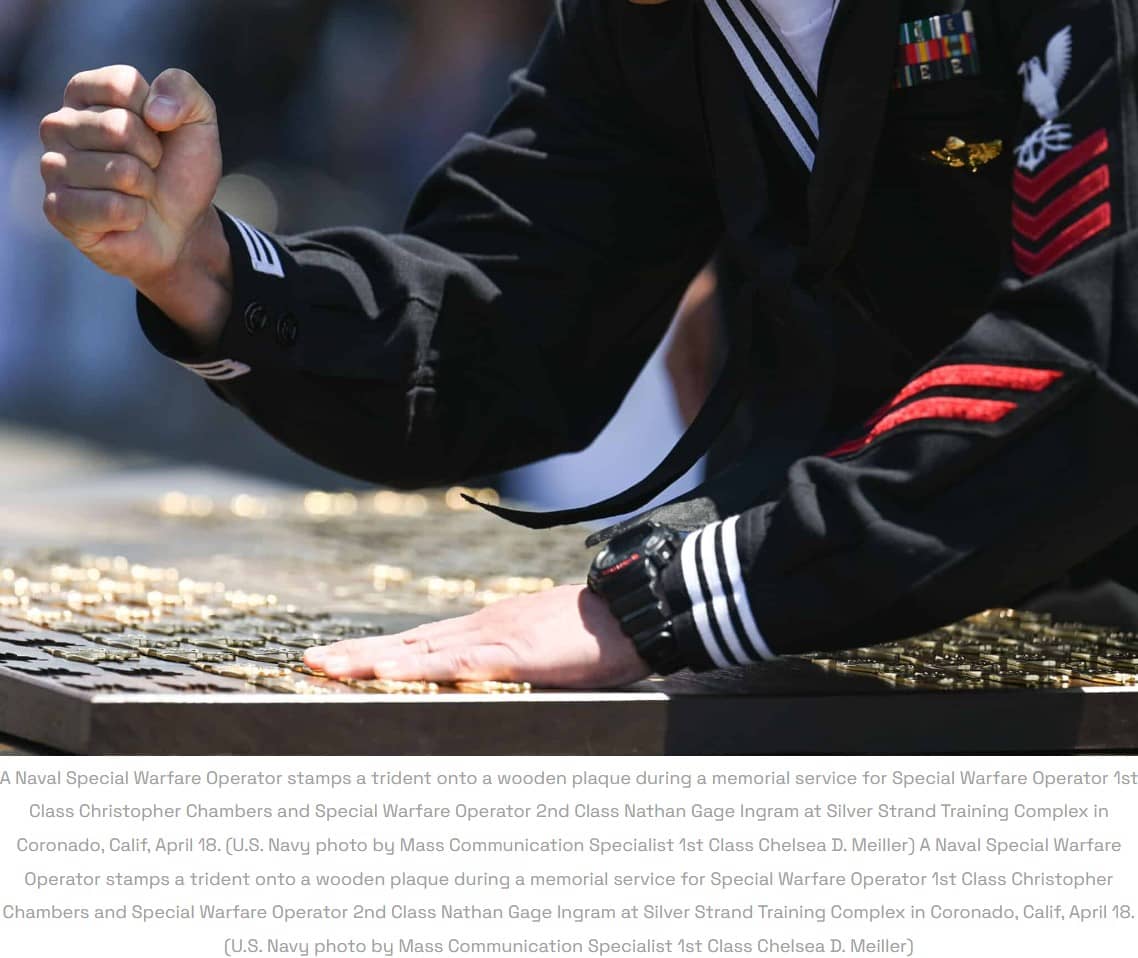Navy Investigation Reveals Details in Death of Two SEALs During Raid Off Somali Coast

An investigation into the January 2014 deaths of two U.S. Navy SEALs during a nighttime raid off the coast of Somalia has found that both incidents were preventable. The report, released by the Naval Special Warfare Command, identifies a range of shortcomings, including equipment malfunctions and insufficient preparation for the dangerous mission, which ultimately contributed to the drownings of Special Warfare Operator 1st Class Nathan Gage Ingram and Chief Special Warfare Operator Christopher Chambers.
The SEALs were part of a team from SEAL Team Three and Special Boat Team 20, tasked with boarding a dhow suspected of smuggling advanced conventional weapons from Iran to Houthi rebels in Yemen. The mission aimed to intercept illicit arms that were believed to be used in attacks against U.S. and commercial vessels in the region. However, the complex operation quickly turned fatal when Chambers slipped from the vessel and fell into the Arabian Sea while attempting to board the Houthi dhow.
Within moments, Ingram, seeing his teammate in distress, jumped into the water to assist him. Both men were wearing more than 50 pounds of gear, including flotation devices that either failed to activate or were inadequate to keep them afloat. Despite their training, neither SEAL was able to stay above water. The entire event unfolded in just 47 seconds, according to video evidence reviewed by investigators. Their bodies were never recovered, despite a 10-day search that covered over 49,000 square nautical miles.
The report highlights that environmental factors, including rough seas, contributed to the difficulty of the mission but were not the primary cause of the accident. Instead, it pointed to systemic issues within the operation, such as inadequate training for the use of flotation devices, and a failure to ensure that the SEALs’ equipment could withstand the added weight during maritime operations.
The report also revealed that the SEALs’ buoyancy was not properly tested prior to the mission, an oversight that might have led to the tragedy. The Navy is now recommending changes to training protocols and equipment checks to prevent similar incidents in the future.
Both Ingram and Chambers were posthumously promoted and are remembered for their sacrifice. In a statement, U.S. Navy Commander Timothy Hawkins expressed condolences, praising the men as heroes who lost their lives during a critical mission to stop the flow of Iranian weapons into Yemen. Their deaths, he emphasized, serve as a stark reminder of the risks faced by U.S. military personnel during covert operations.

